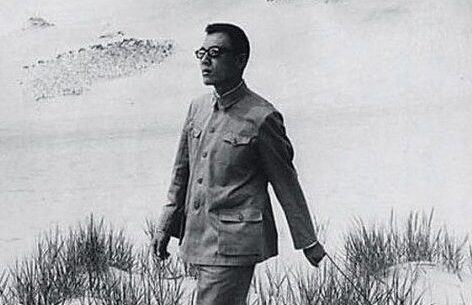This piece was originally posted as part of a ChinaFile conversation.
It is quite impossible to say anything definite about what is happening in China now. Information is at the mercy of one’s circles and social media feeds. It appears that there are a number of simultaneous but uncoordinated social explosions of frustration, anger, anguish, and pent up pain. Some of it appears very political—“Xi Jinping, step down” in downtown Shanghai; “freedom of speech” at universities—and some of it seems to articulate a total emotional exhaustion with the “dynamic zero-COVID” regime rolling through people’s lives in increasingly arbitrary and willful fashion. The current round of explosive collective anger, we must recall, began with the large-scale Foxconn worker unrest, where conditions of labor are normally abysmal and, in the recently-implemented “closed loop” system, are now intolerable. (“Closed loop” refers to factory-dormitory trajectories that reduce to an absolute minimum extraneous activity that might introduce infection.) As Eli Friedman points out in an interview with Jacobin about the recent labor actions in Zhengzhou, the fact that workers now are escaping the factory grounds by surreptitiously scaling fences and perimeter walls indicates that there is a prison-like situation at the giant facility where iPhones are produced.
I leave it to others to trace a clearer timeline of events. The point I want to make is that, as with all such efforts at chronology, where one begins matters. I choose to begin with workers, to emphasize what our commentariat now will most likely ignore: that the current explosion cannot be seen as a purely urban or educated class phenomenon, but rather is rooted in the brutal regimes of wealth accumulation, labor extraction, and global-domestic political power that have grown and metastasized in the past several decades. As Bill Hurst has roughly analyzed in his Twitter feed, the layering of unrests since 1989—in villages where rapacious land grabs dispossess peasants; in factories, in mines, and on digital platforms where labor regimes are cruelly extractive; among poorer urban denizens and migrants defrauded by real estate and banking concerns backed by municipal governments; among feminists and those refusing to conform to patriarchal modes of social organization—has mostly bypassed urban petty bourgeois and capitalist classes who have benefited hugely from the systems of oppression upon which their comfortable lives have been fashioned. The pandemic and increasing disruption of those lives have now registered as intolerable.
What we are seeing now is a number of brave urban folks coming out of their homes to contest the conditions of their partially locked-down lives. They perhaps have not linked their difficulties to the lives of their poorer, more exploited compatriots; in fact, it is a fair bet that most have not. Yet, the spectacle of 10 Uyghur deaths in an inferno in Urumchi, an earlier bus crash near Guiyang that killed 27 COVID evacuees, the Lanzhou toddler who perished from gas inhalation in his sealed-off home . . . the toll is taking its toll. Urban denizens are legible to themselves and to the international media. They are capable of scaling the great firewall and posting on global social media sites, thus becoming fully visible as a collective to a diasporic populace of angry young folks abroad who can amplify and articulate their own political despair in resonant dialogue with their friends and families at home. They speak the language of Euro-American “democracy” fluently, and can make themselves heard as well as seen.
Will the state find a way to repress and then buy these urban denizens off, to bribe them back into their lives so as to calm the unrest while proceeding with the concentrations of power, wealth, and surveillance capacity apace? Or, will these actions snowball into something for which we still have no name? We will see.
Rebecca E. Karl teaches History at New York University.
